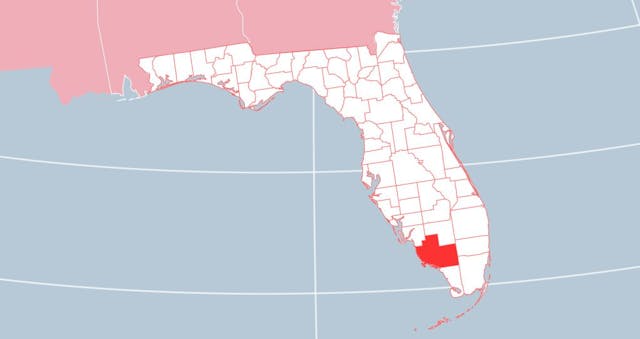Rehabs in Collier
Collier is located in Florida. According to 2020 statistics, it had about 375,000 population. So, it shows an increase of 16.9% since 2010. Further, East Naples is the seat. It includes the Naples-Marco Island Metropolitan Statistical Area.
Substance Abuse Statistics in Collier County
According to 2017 statistics, there were about 3,000 deaths because of overdoses. So, it shows 16.3 opioid-related deaths per 100,000 people. Also, the national average is 14.6 deaths per 100,000 residents.
Moreover, the statistics show that 90% of cases start in the teen years. Besides, 1 in 6 teenagers smoking marijuana will become addicted. Also, among daily users, about 25-50% of people become addicted.
What about alcohol, 4 in 10 who drink before their 15, become alcoholics.
Among Collier County, it shows that 2.2% of middle school-aged and 15.6% of high school-aged teens have used marijuana. However, 4 in 5 teens use neither drugs nor alcohol.
Inpatient, Outpatient, and PHP Rehab
Inpatient
It is provided to individuals whose condition requires hospitalization. Individuals are only admitted to a hospital when they are critically ill or have suffered significant bodily injuries.
Further, individuals often enter these centers after receiving ambulatory care, such as a referral from a family doctor or through emergency departments. So, when an admission letter is written, the patient formally becomes an "inpatient." Similarly, it is formally ended by preparing a dismissal note.
Outpatient
IOP is an abbreviation for an intensive outpatient program. It is one of the various types of outpatient therapy options offered to addicts. So, IOP provides medical and psychological assistance to people while requiring minimal time commitment.
Also, it allows individuals to maintain their usual lives, such as working or caring for children. Patients simply have to go to recovery for treatment sessions such as counseling, cure, reversion, prevention skills, and any extra services.
PHP
The acronym PHP stands for partial hospitalization program. This one is more intense than IOP (intensive outpatient), but not as intense as a full inpatient or residential rehabilitation. So, partial hospitalization requires more visits and sessions per week than IOP.
Moreover, this commitment is equal to that of a residential recovery approach. However, unlike traditional recovery, the patient does not live at the institution while their cure is in PHP. They have the option of selecting their own arrangements.
Rehab Centers in Collier County
Hazelden Betty Ford in Naples
They specialize in alcohol use, drug abuse, and panic. Moreover, they are solving issues such as trauma and PTSD. Besides, they focus on mental health and mood disorders. Also, the targeted age is elders and adults.
Further, here are the treatment options:
- 12 Step
- Support Living
- Opiate Drug Detox
You have the opportunity to attend the center alone, in a group, or with a family.
Big Cypress Counseling
The specialties they are offering are addiction, substance use, and dual diagnosis. Further, they are solving problems such as:
- Alcohol
- ADHD
- BPD
- OCD
- Coping Skills
- Men's Issues
- Grief
- Stress
Also, they focus on mental health problems such as:
- Impulse Control Upsets
- Mood Upsets
The age target is adults, however, the sexuality one is only LGBTQ+.
Here are the care steps:
- Substance Use
- Addiction
- 12 Step
To sum up, here are the therapy types:
- Art
- DBT
- CBT
- Person-Centered
Therapy Treatment Team
They specialize in panic, depression, trauma, and PTSD. The center solves issues such as:
- BPD
- ADHD
- Gambling
- Eating
- Sports Performance
- Divorce
- ODD
- NPD
- OCD
The sexual target is bisexual, lesbian, and LGBTQ+. But, they target adults, elders, teens, and children.
Further, here are the communities the center is in:
- Cancer
- Queer Allied
- Veterans
- Blind Allied
- Sex Worker Allied
Here are the therapy types and treatment approaches:
- CBT
- DBT
- CPT
- ACT
- EMDR
- Gestalt
- Coaching
- Strength-Based
How to Force Teens into Rehabilitation?
As a parent of a drug-addicted kid, you will undoubtedly experience stress and fear. Obviously, one of your aims will be to assist your child in understanding that they will benefit from treatment. They require assistance in dealing with the psychological, physical, and social components of addiction.
Firstly, be patient with your teen if they express unfavorable feelings about medicine, and assist them in learning more about the rehab institution you have chosen. Secondly, listen to your child's thoughts and indicate that you understand him/her.
However, keep in mind that, if your child is 17 or younger, you can make them go to rehabilitation.

